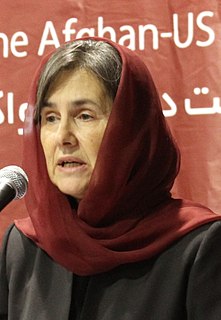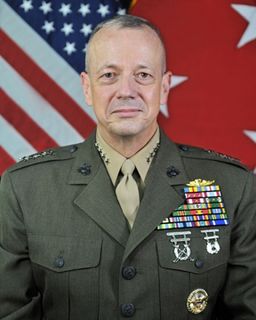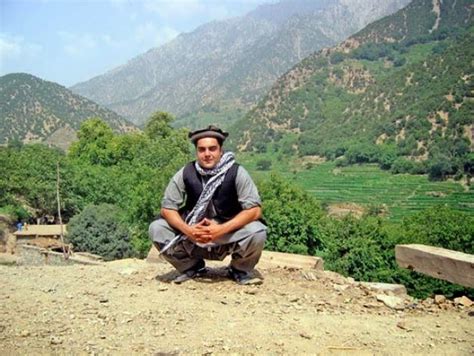A Quote by Elliot Ackerman
I tried to render the Afghan war as much as I could fro the perspective of the Afghans. I have served as an advisor to Afghan troops, and much of my war experience was seen through the lens of fighting that war alongside Afghan soldiers.
Related Quotes
The president [Barack Obama] decided to leave more troops than he had originally planned in Afghanistan. We have a very cooperative government there, with Ashraf Ghani and his top - his top partner, Abdullah. And they are doing their very best. And the Afghan army is actually fighting. The Afghan army is taking heavy losses defending Afghan territory.
In terms of Iraq, al Qaeda valued Iraq because we destroyed a government it wanted destroyed and because we put soldiers on the ground and forces that they could attack. Al Qaeda is basically an insurgent organization that was formed on the model of the Afghan groups. And being bred in that war, they value a contiguous safe haven as much as anything else.
The question is always how you get the number of troops needed. They do not have to be coalition forces. We also have to expand the training program for the Afghan National Army and the national police, in particular. and Defense Secretary Robert Gates has already announced support for a significant increase in the Afghan army.
And across Afghanistan, every single day, Afghan soldiers, Afghan police and ISAF troops are serving shoulder-to-shoulder in some very difficult situations. And our engagement with them, our shoulder-to-shoulder relationship with them, our conduct of operations with them every single day defines the real relationship.
The Afghan government is much better informed, much more intrusive and ambitious than I had guessed. There are amazing craftsmen in Kabul but few designers and wage rates are astonishingly high - which is a problem when trying to support and promote Afghan craft exports. The community in Murad Khani in the old city - who we are helping to restore their area - have been the best part so far - eccentric, led by a champion wrestler, determined, proud and courageous.
The Afghan "negotiation phase" immediately precedes the traditional Afghan "surrender phase." This entails the following: The defeated party surrenders and then comes out shooting. This is repeated several times. Finally, the vanquished party runs out of ammunition and is forced to surrender ' but seriously this time ' at which point the victors kill the foreigners and hug their fellow Afghans like long-lost brothers.


































